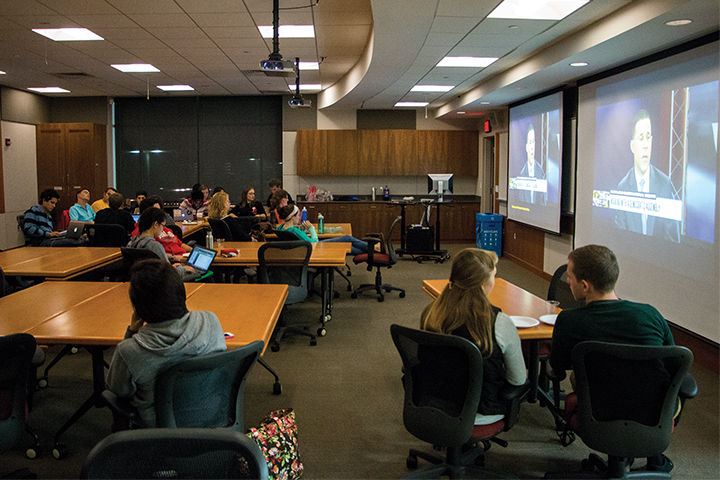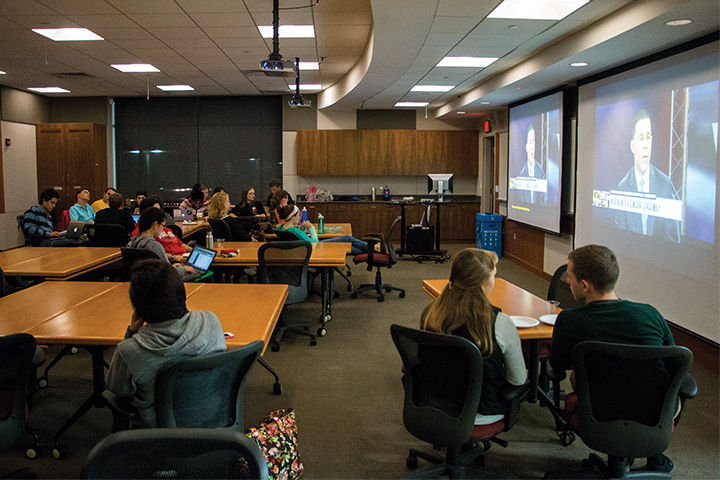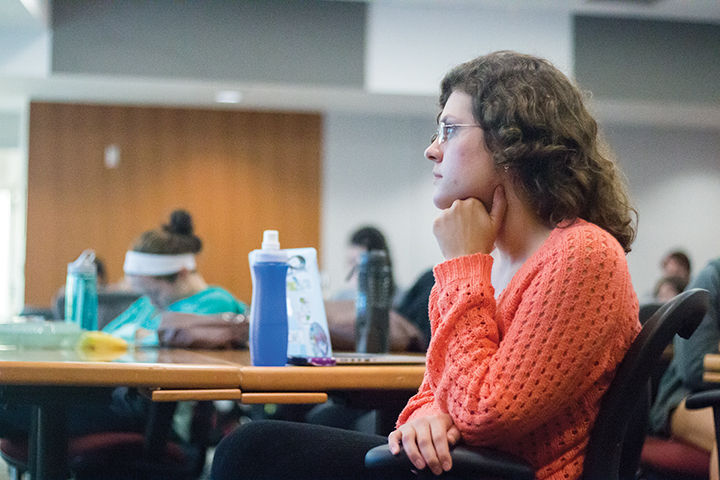This state’s gubernatorial candidates squared off in their second debate last night, and more than 40 students gathered for a watch party in Knight Hall sponsored by the Society of Professional Journalists.
“We believe government and society can function best when the public is informed,” SPJ President Emily Schweich said. “It’s not cool or hip to be naive anymore. The more we know about government and politics, the more we can participate in society and make it a better place.”
The debate, much like the first one on Oct. 7, focused on taxes and the economy but also touched on the state’s long-maligned health insurance exchange and environmental and social issues.
Lt. Gov. Anthony Brown was asked about his role in Maryland’s failed health exchange website, which cost the state $288 million, an issue Republican Larry Hogan was upset didn’t come up in the first debate. Hogan called the failed exchange “the biggest boondoggle in state history,” and said Brown was primarily at fault.
“Everyone involved with the exchange has responsibility, including me,” Brown said. He also provided a defense of the program, saying that it allows children to stay on their parents’ plans until they are 26 years old and gives women greater access to contraceptives.
“I was very glad they asked about that because it didn’t come up in the first debate, and I thought that was a very big thing that happened in Maryland,” said junior environmental science and policy major Skyler Golt, a member of this university’s College Republicans club. “A lot of money was wasted in it, and we had to scrap it and go with another state’s model.”
College affordability issues were only briefly mentioned when Brown attacked Hogan for his part in former Gov. Robert Ehrlich’s tuition increases, something he has brought up throughout the campaign. Student Government Association President Patrick Ronk said he was disappointed in the lack of debate about the future of college tuition.
“There was no plan long-term from either candidate, which really annoyed me,” Ronk said.
The debate began with a discussion of social issues, with the moderator asking Hogan if he shares the same values as state residents, who have supported recent progressive legislation on marriage equality, the Dream Act and firearm safety. Hogan said he will uphold the law and does not plan to roll back any of the measures.
Brown questioned whether Hogan would “vigorously support and embrace” the laws, and he pointed to a Washington Post story in which witnesses claimed Hogan secretly told gun rights activists that he would work to make it easier to obtain permits to carry a concealed weapon. Hogan refused to respond to the claims but said he would not roll back the 2013 gun-control legislation.
The candidates spent several minutes debating Chesapeake Bay cleanup efforts, specifically involving stormwater management and what Hogan calls the “rain tax,” which imposes fees on surfaces that increase water runoff.
“It’s insulting to say it’s a rain tax; we’re not taxing the rain,” Brown said. “What we’re doing is funding a program mandated by the [Environmental Protection Agency] to reduce stormwater runoff carrying pollutants into the bay.
Luke Pinton, SGA government affairs director, said he doesn’t want to see such lengthy discussions on water runoff and wishes candidates would move on to other issues.
“I think it’s amazing that stormwater management and issues you don’t think of are becoming something that’s so important to Maryland that it’s a main part of debate,” Pinton said. “I find that really scary and impressive in a bad way that that’s becoming an essential part of Maryland politics.”
With just 21 days left until the election, the candidates will participate in one more televised debate on Saturday. Running mates Ken Ulman and Boyd Rutherford will participate in a radio debate on Thursday.
Emily Schweich, the president of the University of Maryland’s chapter of the Society of Professional Journalists, watches the gubernatorial debate during the debate watch event last night.





